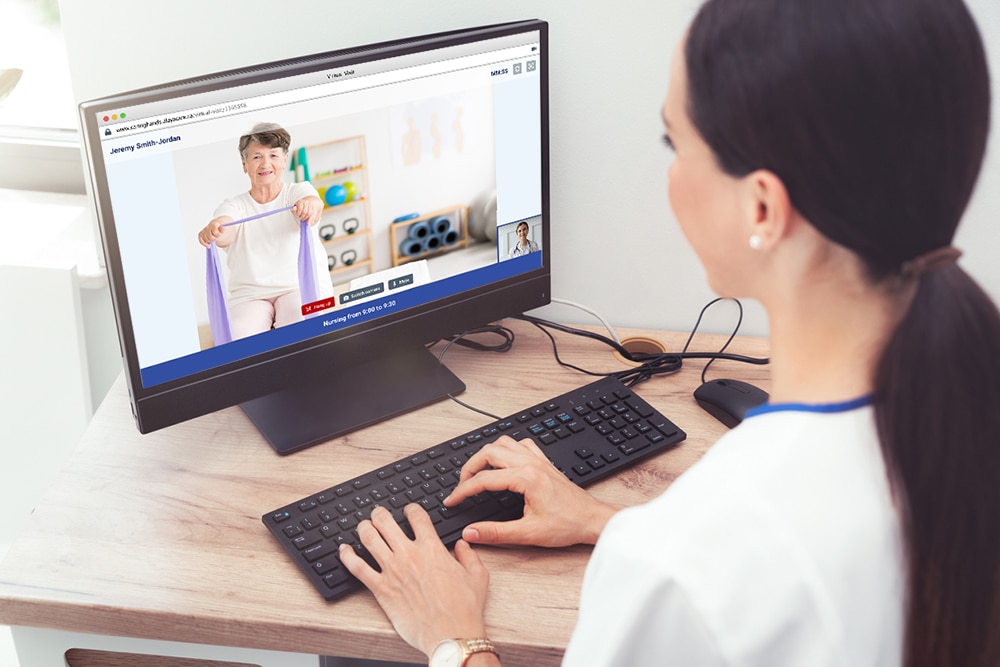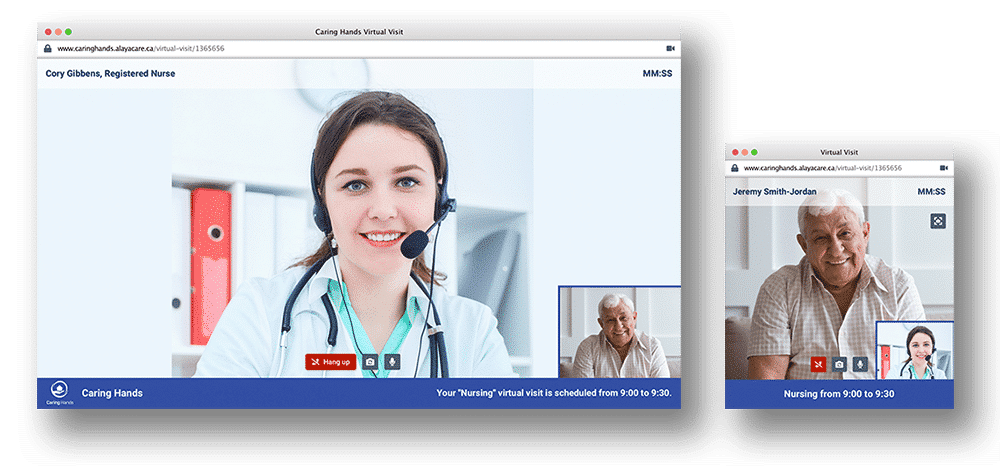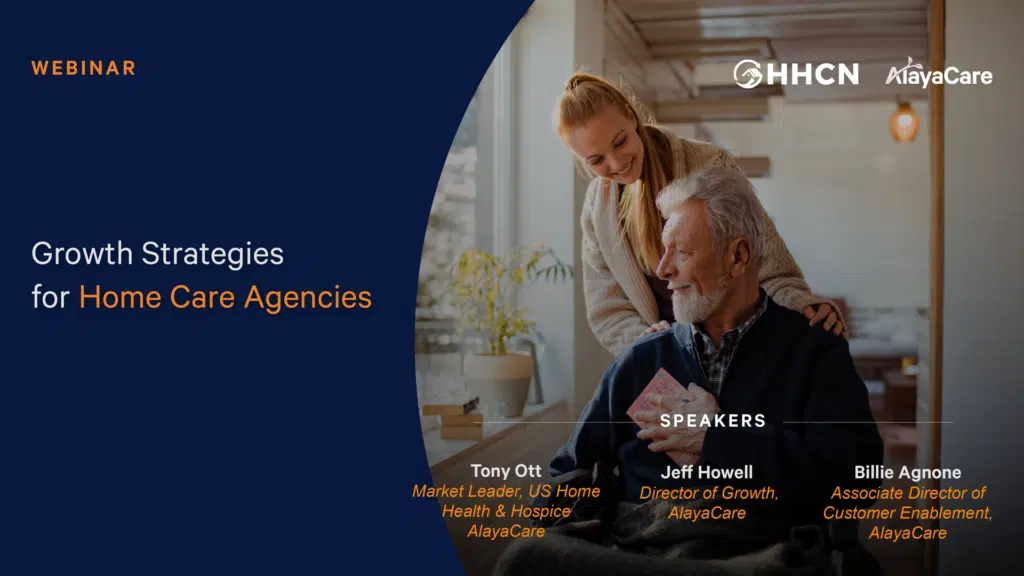Blog
Virtual care tools can break isolation among home and community care clients amidst COVID-19

The number of adults living alone has continued to climb over the past 60 years, amounting to almost 37 million Americans as of 2019. This represents nearly one-third of all U.S. households.
As we know, the home and community care industry serves a high proportion of clients who are striving to live independently while on their own. The vast majority are aging adults who come to rely heavily on visits from family members, scheduled activities in the community, or even errands to see familiar faces.
Such outings and visits are increasingly compromised by the spread of the novel coronavirus. As a result of social distancing, these older home care clients face a heightened level of isolation that can worsen their health outcomes.
AlayaCare is prioritizing its delivery of virtual care solutions to try and soften feelings of isolation – more on that in a moment.
{{ script_embed(‘wistia’, ’47x0clbdtx’, ”, ‘inline,responsive’) }}
A looming threat to home care clients
COVID-19 has stores closed and events cancelled – and many people left alone. For anyone, isolation is hard. For aging home care clients, isolation is a particularly significant issue that can threaten their entire well-being.
For decades, researchers have studied the impact of social isolation on our health. While no one has identified exactly how it happens (physiologically-speaking), a swell of research points to a negative impact on health – particularly when it comes to depression and heart disease.
Until now, loneliness has been more frequently researched than feelings of isolation, as this 2017 review found both feelings are cut from the same cloth. In fact, another review that year found a significant link between social isolation and loneliness – with a higher risk of cardiac problems, poor mental health outcomes, and death of any cause.
We don’t need to revisit the statistics on baby boomers growing older, and the surging need for home care, to see that isolation puts a lot of people at risk. Worryingly, the chief medical officer of the American Foundaiton for Suicide Prevention recently highlighted concerns of how the stress and isolation caused by COVID-19 can exacerbate the mental health risk for older adults. The esteemed Johns Hopkins Medicine also weighed in on this issue, with tips on caregiving for the elderly in the current climate.
In short: feeling disconnected can be an acutely serious problem among older clients who need home care services. Technology, while not replacing in-person connection, can offer support.
Solutions Purpose-Built for Home and Community Care
Here at AlayaCare, we pride ourselves on innovative solutions that help home and community care agencies maintain a continuous care plan while connecting older clients to their caregivers and loved ones. Features such as advanced video conferencing and a virtual family portal can be customized for the needs of clients. These can be accessed privately and securely from anywhere, on any mobile or desktop device connected to WiFi or cellular networks.
Face-to-face communication, even virtual, is imperative in helping reduce the negative impacts of social isolation. (In fact, studies have shown that a lack of face-to-face social contact can nearly double someone’s risk of depression.) For seniors in particular, video conferencing is a lifeline when social interaction isn’t feasible.
Take, for instance, one study that found just five minutes a week of video conferencing with family alleviated depressive symptoms and loneliness for nursing home residents over a three-month period.
Virtual care: a life-saving difference
There’s no question that many care providers have important and meaningful bonds with many of their clients. During a pandemic that brings waves of uncertainty each day, keeping those bonds intact is more important than ever to maintain continuity, promote positivity, and protect mental health.
While we look forward to normalcy and a return to regular interactions, we can leverage technology to preserve consistency of care – including emotional care – while also protecting care workers and their clients from a serious virus.




